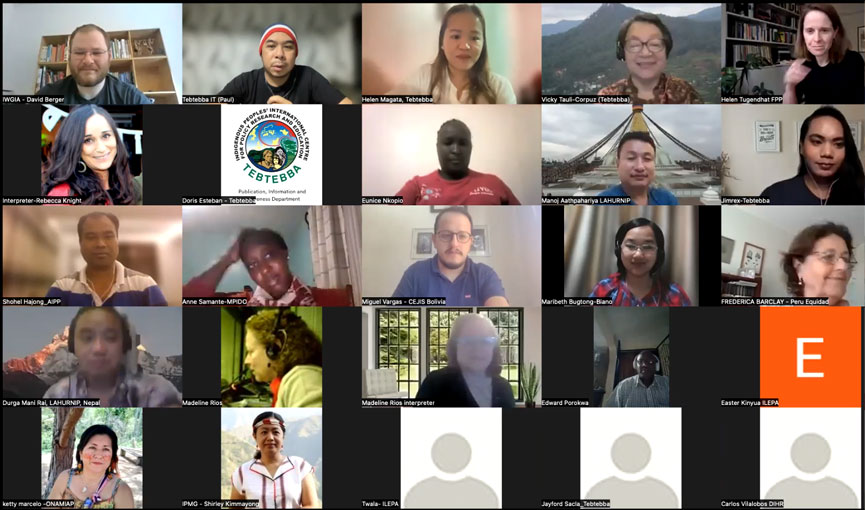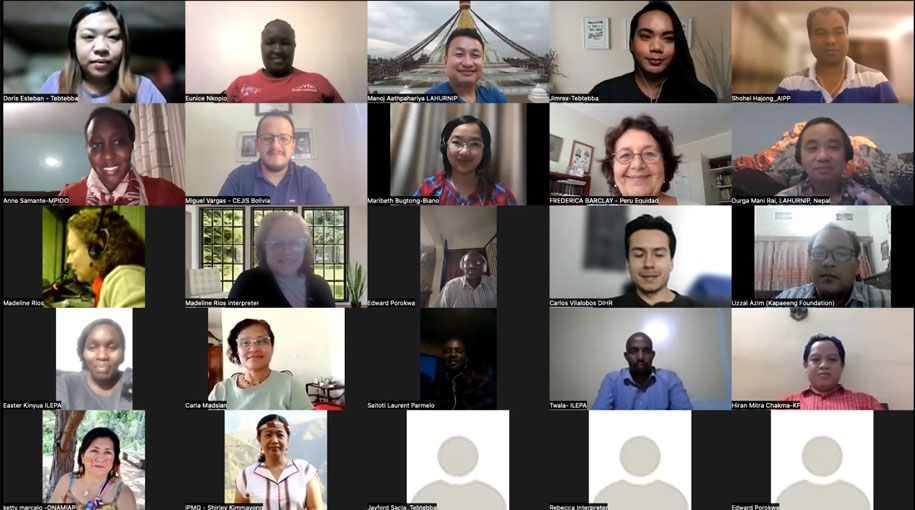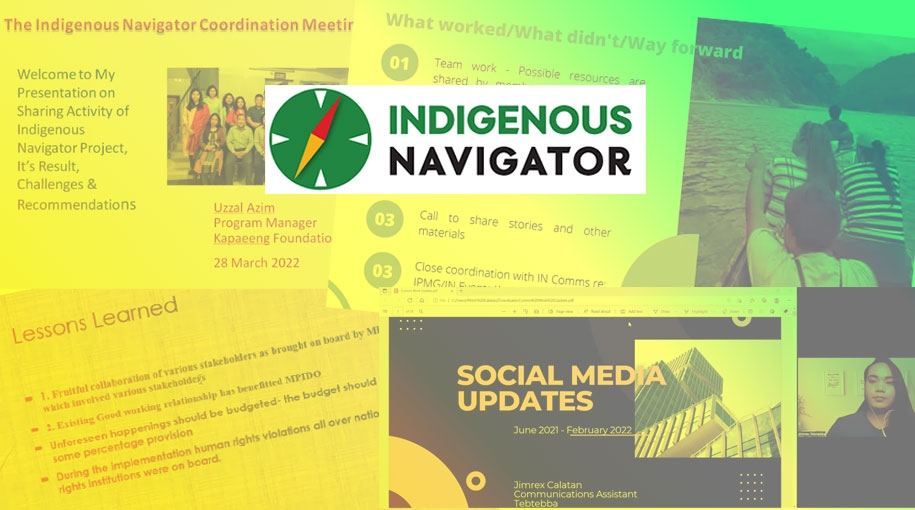“Communications must be enhanced because all of the problems we mentioned stem from miscommunication.”
Anne Samante of the Mainyoito Pastoralists Integrated Development Organization (MPIDO) emphasized the need to improve communication and coordination efforts between and among the different consortium members and partners of the Indigenous Navigator (IN) initiative. In her presentation during the virtual IN coordination meeting, held on 28 March 2022, she stressed that “Communication gaps must be addressed because dialogues can yield very good results,” as she cited how the many good practices and initiatives of indigenous peoples’ are often underreported or misappropriated.
“Strengthening communications work is important as this is one way to reach out to the different partners and really get a sense of what we are doing to achieve this initiative,” pointed out Victoria Tauli-Corpuz, Tebtebba executive director and former United Nations Special Rapporteur on the Rights of Indigenous Peoples as she welcomed the participants in the said meeting. “These [community efforts and generated reports] are the things that we are going to communicate to the outside world and among ourselves,” she added.
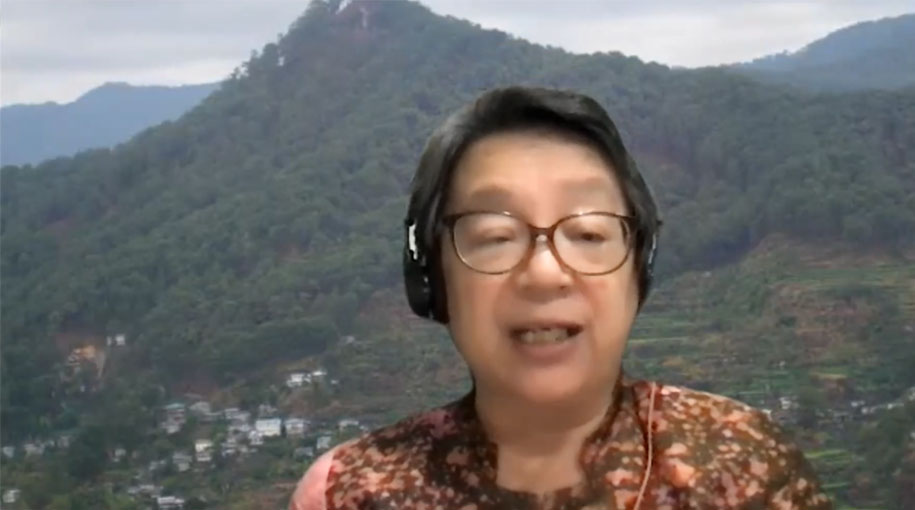
Victoria Tauli-Corpuz, Tebtebba executive director and former United Nations Special Rapporteur on the Rights of Indigenous Peoples
Meanwhile, Carla Madsian of the Vereniging van Inheemse Dorpshoofden in Suriname (VIDS) posited that the “continuous generation of reports [can] be used by relevant stakeholders [including the government]” specifically in their development of policies and projects that impact indigenous peoples. “[It would also be beneficial] to establish a communications network among all indigenous peoples in Suriname,” she said, noting that the challenge for such an endeavor would be the internet difficulties experienced in the area, among others.
Other presenters similarly provided updates with regard to the IN initiative in their respective countries and offered recommendations in terms of amplifying communications work as the shift to online advocacy work was spurred on by the travel and face-to-face limitations imposed due to the COVID-19 pandemic which, in turn, heavily affected operations especially because most development efforts were previously formulated and implemented in direct and continuous on-site consultation with indigenous community leaders and members.
Maribeth Bugtong-Biano, training coordinator of the Elatia Training Institute, also shared a summary of the Workshop-Training on Social Media for Advocacy that occurred on 16, 18, 23, and 25 March 2022, an event that was conducted for both Elatia and IN partners through the facilitation of Tebtebba and the Elatia Training Institute with support from the Christensen Fund through International Work Group for Indigenous Affairs (IWGIA). “It’s very heart-warming to know that some of the participants [in the workshop-training] have learned to use for the first time some of the tools in creating content,” she enthused, enlisting the key takeaways from the said event such as the “(1) Appreciation of the significant roles of indigenous peoples as communicators, (2) Acquired knowledge and skills on using some tools, e.g. Canva, in creating contents for advocacy and information through social media, and (3) Enhanced capacities on creating and delivering contents or messages in social media.”
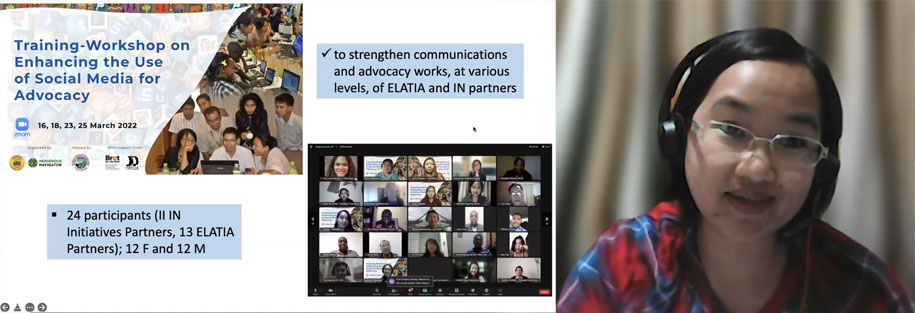
Maribeth Bugtong-Biano, training coordinator of the Elatia Training Institute
“We still have five years to do IN work but we do not have the resources that we should have—we only have minimal,” mentioned Helen Tugendhat of IWGIA. She, however, agreed that “communication between and from [the consortium members and partners] is really important to gather the materials [and updates]” regarding all the efforts being done in focus indigenous communities. She asserted that the said inputs presented during the meeting has, indeed, set the next steps of the initiative. “This, then, is a period of planning to further prepare for the work that we are already doing anyway,” she encouraged.
Joined in by 78 indigenous leaders from all over the globe, the coordination meeting was facilitated by Tebtebba for the IN communications arm with support from the Christensen Fund through IWGIA.
Initiated by and for indigenous peoples, the Indigenous Navigator is both a framework and a relevant set of tools, to monitor how indigenous peoples’ rights are respected, protected, and fulfilled and how the 2030 Sustainable Development Goals (SDGs) are achieved. It is piloted with the support of the European Union by a consortium composed of IWGIA, Asia Indigenous Peoples Pact (AIPP), Forest Peoples Programme (FPP), Danish Institute of Human Rights (DIHR), and Tebtebba as the steering committee and 14 indigenous peoples’ organizations from Asia, Africa, and Latin America, and the Caribbean..
